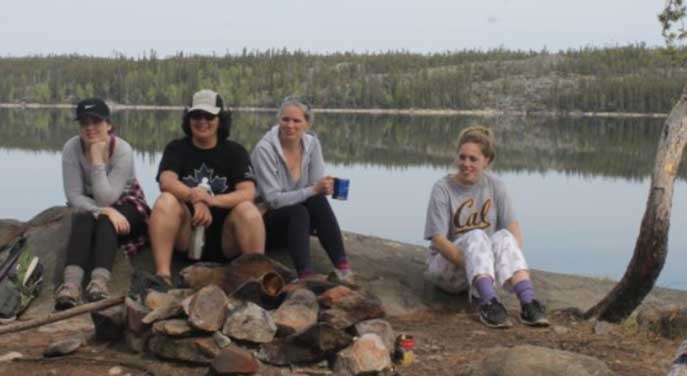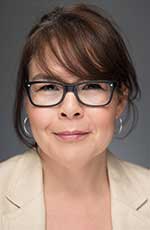Kimberly Fairman is helping to revolutionize the way public health policy is developed in Northern Canada. Fairman is executive director of the Institute for Circumpolar Health Research, an organization focused on improving the health of northerners through community-based research.
“This is the most meaningful work of my career,” Fairman said. “It gives me the freedom to approach public health as an Indigenous person in a way that is principled and respectful.”
And now, as she graduates from the University of Alberta this week with a master’s degree in public health, the former nurse and government policy maker has new skills to bring to the role.
“The U of A courses helped me develop skills around how to think about public health issues from the clients’ perspective so we can incorporate what we’re hearing from the communities into our health promotion plans, making them more effective, more engaging and more tailored.”
Community-based research respects local knowledge, Fairman explained.
“Community members are the ones who really understand the need for a service or for an approach,” she said. “Being truly respectful is being able to listen to what people are saying and hold that in the same space with your own ideas.”
The impact of climate change on food security is a good example. On the face of it, the problem is not having sufficient access to nutritious and affordable food. But Fairman said there are much broader cultural and social implications within Indigenous communities, especially when it comes to limited access to traditional food.
“It affects roles in the community and in the family, including self-esteem and self-worth on an individual level, and a whole communal aspect that includes sharing food and providing for Elders or young people,” she explained. “If we don’t include the knowledge of those connections, we may miss the opportunity to properly address that issue.”
The institute also does comparative research on health policy in other circumpolar nations such as Norway and Greenland. There are similarities not only in the geographical challenges faced by Indigenous communities there but also in social determinants such as access to housing, education and healthcare, Fairman said.
Fairman is Nunavummiut. Her family is originally from Taloyoak, Nunavut, but they moved when she was young.
“We moved to Yellowknife because my mom was a residential school survivor and she did not want us to go away for school,” she said.
Fairman was able to get her nursing diploma in Yellowknife at Aurora College but had no local access to graduate studies. She was able to do the U of A’s School of Public Health program remotely, with just one week of on-campus orientation.
Going back to school in her 40s was uncomfortable, she said, but she had just made a major career change by joining the institute, so she decided to go for it.
“I had already made one change in my life, and it had always interested me to continue on in my education.”
She had to carefully consider the investment of time and energy in relation to her experience and life learnings.
“I was really unsure at first whether it was the right choice for me and I felt self-conscious,” she said. “But I learned from the students in my cohort – again, it’s that idea of seeing an issue from a different point of view. Moving into that space of learning was a real gift.”
Fairman, 51, still lives in Yellowknife along with her husband, four children and four grandchildren. She said she’s proud she completed the degree, and now a number of colleagues and her children have said they are also considering post-secondary or graduate studies after seeing her success.
“It’s really interesting how being a bit brave has maybe helped other people think about the possibilities.”
Fairman leads federally funded research projects on Food Security and Climate Change in the Canadian North and Network Environments for Indigenous Health Research. She is also committed to continuing to hone her community-based research skills, possibly through further graduate studies.
“When we learn a little bit about something, we tend to work inside a box. When we’re really good at it, then we can stand on top of that box and it becomes a platform to do really creative and inspired work,” she said.
“I work with elders and community members who are very inspiring, and I would like to help those communities realize their vision for wellness and health.”
| By Gillian Rutherford
This article was submitted by the University of Alberta’s Folio online magazine. The University of Alberta is a Troy Media Editorial Content Provider Partner.
© Troy Media
Troy Media is an editorial content provider to media outlets and its own hosted community news outlets across Canada.



